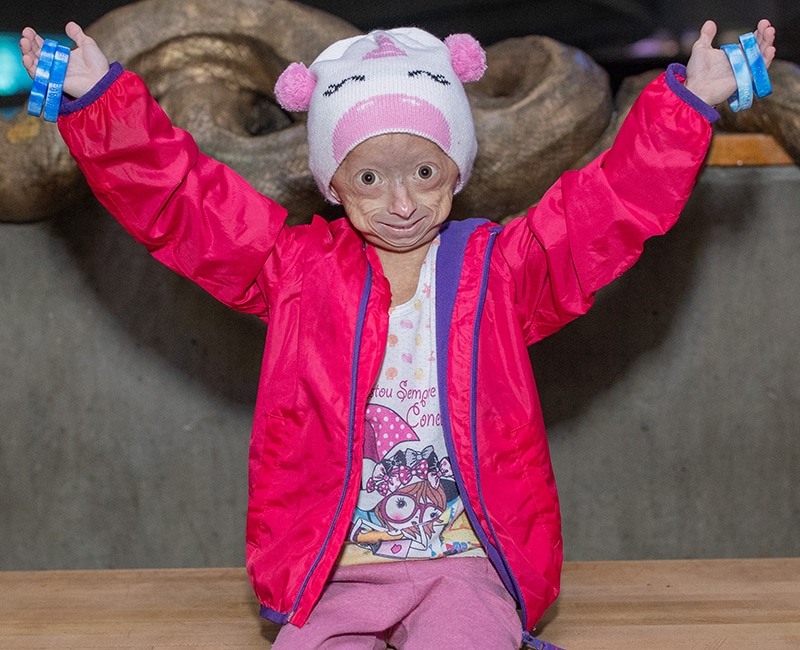
Happy New Year! We hope everyone had a healthy, restful holiday.
We are kicking off 2021 off with more exciting research news. In January, the science journal Nature published breakthrough results demonstrating that genetic editing in a mouse model of Progeria corrected the mutation that causes Progeria in many cells, improved several key disease symptoms and dramatically increased lifespan in the mice.
Co-funded by PRF and co-authored by PRF’s Medical Director Dr. Leslie Gordon, the study found that with a single injection of a base editor programmed to correct the disease-causing mutation, mice survived 2.5 times longer than control untreated Progeria mice, to an age corresponding with the start of old age in healthy mice. Importantly, treated mice also retained healthy vascular tissue—a significant finding, as loss of vascular integrity is a predictor of mortality in children with Progeria.
The study was co-led by world expert in genetic editing, David Liu, PhD, of the Broad Institute, MIT, Cambridge, MA, Jonathan Brown, Assistant Professor of Medicine in the Division of Cardiovascular Medicine at Vanderbilt University, and Francis Collins, MD, PhD, Director of the National Institutes of Health.
Additional preclinical studies are needed to investigate these results, which we hope will one day lead to a clinical trial. We look forward to keeping you informed of this exciting finding as further progress is made!
Read more about this thrilling news here.
As we enter 2021, we are grateful for partners like YOU, who make this kind of progress possible.
Last year alone, The Progeria Research Foundation:
- Achieved a major milestone with the first-ever FDA-approved treatment for Progeria, lonafarnib;
- Brought children with Progeria from around the world to Boston Children’s Hospital for the PRF-funded clinical trial (when travel was allowed due to COVID 19);
- Held our 10th International Progeria Scientific Workshop, bringing together a record 370 registrants from 30 countries in our first-ever web-based scientific meeting;
- Continued in earnest with our key programmatic activities that will lead us to treatments and the future cure!
Koblan LW, Erdos MR, Wilson C, Cabral WA, Levy JM, Iong, ZM, Tavarez UL, Davison L, Gete YG, Mao X, Newby GA, Doherty SP, Narisu N, Sheng Q, Krilow C, Lin CY, Gordon LB, Cao K, Collins FS, Brown JD, Liu DR. In Vivo Adenine Base Editing Rescues Hutchinson-Gilford Progeria Syndrome Nature. 2021 Jan 6
